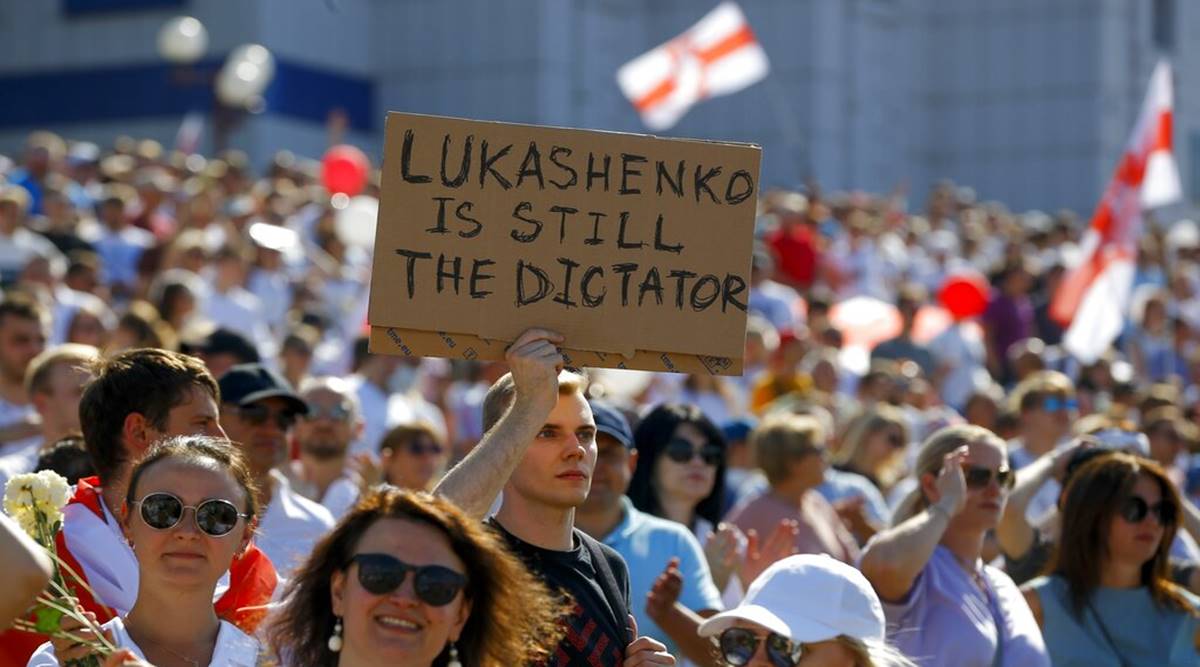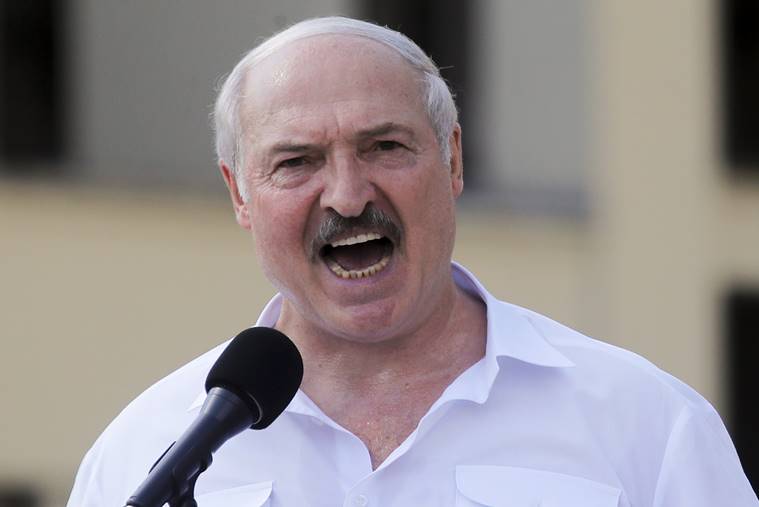 Belarus protests: In this Sunday, Aug. 16, 2020 file photo Belarusian opposition supporters rally in the center of Minsk, Belarus. European Union leaders are putting on a show of support Wednesday Aug. 19, 2020 for people protesting in Belarus. (AP Photo/Sergei Grits, File)
Belarus protests: In this Sunday, Aug. 16, 2020 file photo Belarusian opposition supporters rally in the center of Minsk, Belarus. European Union leaders are putting on a show of support Wednesday Aug. 19, 2020 for people protesting in Belarus. (AP Photo/Sergei Grits, File)Belarus protests: After over 10 days of protests against the recently-held elections on August 9 that brought President Alexander Lukanshenko to power once again with 80 per cent of votes, European Union leaders are now aiming to show their solidarity and support for people protesting in capital Minsk. The EU leaders also hope to throw spotlight on the contested presidential election and increase pressure on officials linked to the security crackdown on civilians, reported AP.
Widespread protests rocked the capital Minsk after the August 9 polls handed Lukashenko his sixth term in power, an election that EU believes “have been falsified”. Ever since the election results, Belarus security forces have detained almost 7,000 people and injured hundreds with rubber bullets, stun grenades and clubs in the first four days of demonstrations. At least two protesters died, as per AP.
Lukashenko, who has run the ex-Soviet nation of 9.5 million with an iron fist since 1994, won his sixth term with 80 per cent of votes in the August 9 election widely seen as rigged.

As unprecedented mass protests entered their 11th day today workers at state-controlled companies have joined strikes this week.
Here are the top developments from today:
Belarus challenger urges EU to support ‘awakening’ country
The exiled head of Belarus’ opposition Sviatlana Tsikhanouskaya called on Europe to support “the awakening of Belarus.”
In a video message today, Tsikhanouskaya said, “I call on you not to recognize these fraudulent elections. Mr. Lukashenko has lost all the legitimacy in the eyes of our nation and the world.” Tsikhanouskaya, a 37-year-old former English teacher who united fractured opposition groups and drew tens of thousands to rally in her support, got only 10 per cent.
She dismissed the results as falsified and demanded a recount, but then suddenly left the country for Lithuania in a move her campaign said was made under duress.
Earlier this week, the opposition leader had said that she was prepared to act as a ‘national leader’ and help in facilitating a rerun of the election.
EU leaders seek to ramp up pressure on Belarus president
 After coming to power, Lukashenko solidified his control over Belarus’s legislature, judiciary and media, and used the KGB spy apparatus inherited from Soviet predecessors to crush dissent. (Photo: AP)
After coming to power, Lukashenko solidified his control over Belarus’s legislature, judiciary and media, and used the KGB spy apparatus inherited from Soviet predecessors to crush dissent. (Photo: AP)
Meanwhile, EU Council President Charles Michel has, in a letter, invited leaders to the teleconference saying that “what we have witnessed in Belarus is not acceptable”, reported AP. He added that the “violence against peaceful protesters was shocking and has to be condemned. Those responsible must be held to account.”
In a half-hour phone conversation with Russian President Vladimir Putin, Michel shared EU’s concern on election irregularities and the scale of the security crackdown, adding that Belarus people have the right to determine their own future.
During the conversation, both leaders discussed ways to encourage talks between Lukashenko and the opposition, possibly by supporting a dialogue process fostered by the Organization for Security and Cooperation in Europe.
Lithuania has played a pivotal role in the protests by giving refuge to Tsikhanouskaya, while its Baltic neighbors, Estonia and Latvia, are also deeply involved in diplomatic efforts, as is Poland.
(With inputs from AP)